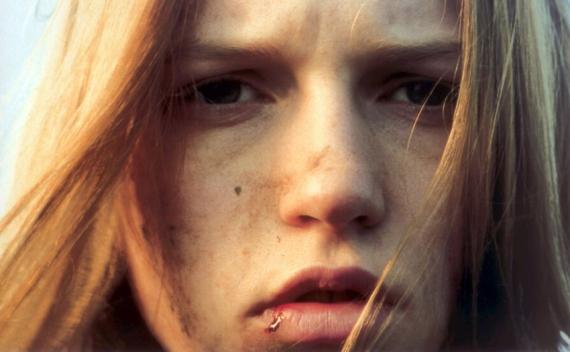Who could have said “no” to NYC?
In conjunction with the Museum of Modern Art (MoMA)’s film series The Berlin School: Films from the Berliner Schule (Nov. 20-Dec. 6), Deutsches Haus at NYU presented a two-day conference, entitled The State We’re In: The Films of the Berliner Schule. MoMA screened seventeen films by nine filmmakers. The cinematographer Reinold Vorschneider and the filmmakers Christian Petzold, Ulrich Köhler, Thomas Arslan, Angela Schanelec, Benjamin Heisenberg, Christoph Hochhäusler were in attendance at selected screenings. They also attended the conference that featured four panel discussions among filmmakers, scholars, and film critics over the span of two days. The discussions were moderated by Marco Abel, associate professor of English and Film Studies at the University of Nebraska, Lincoln, Katja Nicodemus, film critic for German national weekly newspaper Die Zeit, and Fatima Naqvi, associate professor in the Department of Germanics, Russian, and East European Languages and Literature at Rutgers.
The conference happened in a city I kept wanting to return to ever since my first visit in 1996, the year I got a chance to travel through the United States (along with about 20 fellow students from the Christian Rauch Gymnasium in Bad Arolsen, Germany). More importantly, the conference offered a chance to meet most of the filmmakers whose films have inspired me to write my dissertation on how contemporary German cinema defines itself--surprisingly perhaps--through traditional art genres.
The first panel entitled “Germany after 1989: Insights into a Society in Transition” on Friday night focused heavily on questions of German identity and filmmaking after the fall of the Berlin Wall. It seemed that the audience was far more obsessed with finding a discourse of German identity in Berlin School films precisely because the films seem to lack it, or because the filmmakers kept stressing the fact that the starting point of their films oftentimes is a personal, or abstract issue, rather than an external, concrete (political) event. The panel was followed by a reception, and with a beverage in one hand and hors d’oeuvre in the other, I approached Ulrich Köhler to talk about his decision to work in film, rather than in the static arts, the field of his academic training.
New York City does definitely not sleep, and neither did I. Or I should say, I did sleep, but rather very little thanks to the 24hour bus line stopping in front of my accommodations in Bushwick.
After finding my way back to the West Village the next day, and grabbing one of the few unreserved seats in the middle of the rather cozy conference room, the second panel of the conference “Watching, Writing, Shooting: Cinema as Inspiration,” moderated by Katja Nicodemus, started. The conversation picked up on the previous night’s questions of influences and defining the filmmaker’s own approach through the history of film. Particularly the observation by an audience member pointing to the lack of happy people in the films sparked some conversations amongst conference attendees afterwards. At this point I want to thank my husband for joining me on this trip, and pointing out this apparent lack of happiness because it was the starting point of what became a longer conversation between Benjamin Heisenberg, Christoph Hochhäusler, my husband, and I about their stylistic choices in film, the problem about talking about realism, and their filmic endeavors into comedy.










Energized (after having had a slice of greasy pizza) and hyper (after just having talked to the filmmakers), we returned to the Deutsche Haus for the third panel, with Angela Schanelec and Reinold Vorschneider in attendance. The title of the panel, “To Film Light Itself,” was taken from Schanelec’s speech on March 8, 2013 for Vorschneider’s Marburg Camera award celebration. The panel focused on the filmmaker’s close working relationship with Vorschneider. The two most noticeable elements of this panel were that Schanelec didn’t seem to agree with any of the observations made by the moderator and audience and that most of the questions seemed to have anything to do with filming light (as the title of the panel suggested), effectively leaving the cinematographer to sit quietly by himself.
The room quickly filled up. Petzold was the last one to be questioned. The title of the panel “Ghost Stories and the Exploration of the East” foreshadowed the kind of questions that were going to be asked, and the kind of stories we were about to hear. Petzold turned out to be a very entertaining storyteller. He told stories about the books that inspired him, the lack of wind in his town where he grew up, and the cars he drove around town to impress girls. And then he fell from the stage.
There was no way I was going to have missed that.
Jasmin Krakenberg, Ph.C
Department of Germanics, University of Washington, Seattle
http://uwmirggig.wordpress.com
